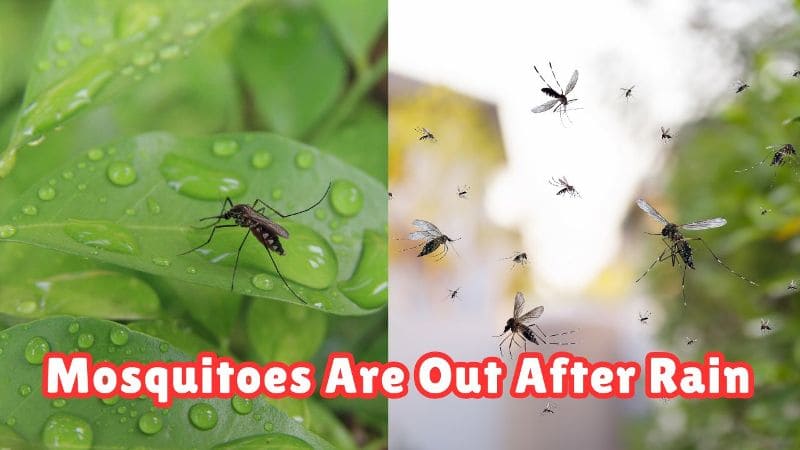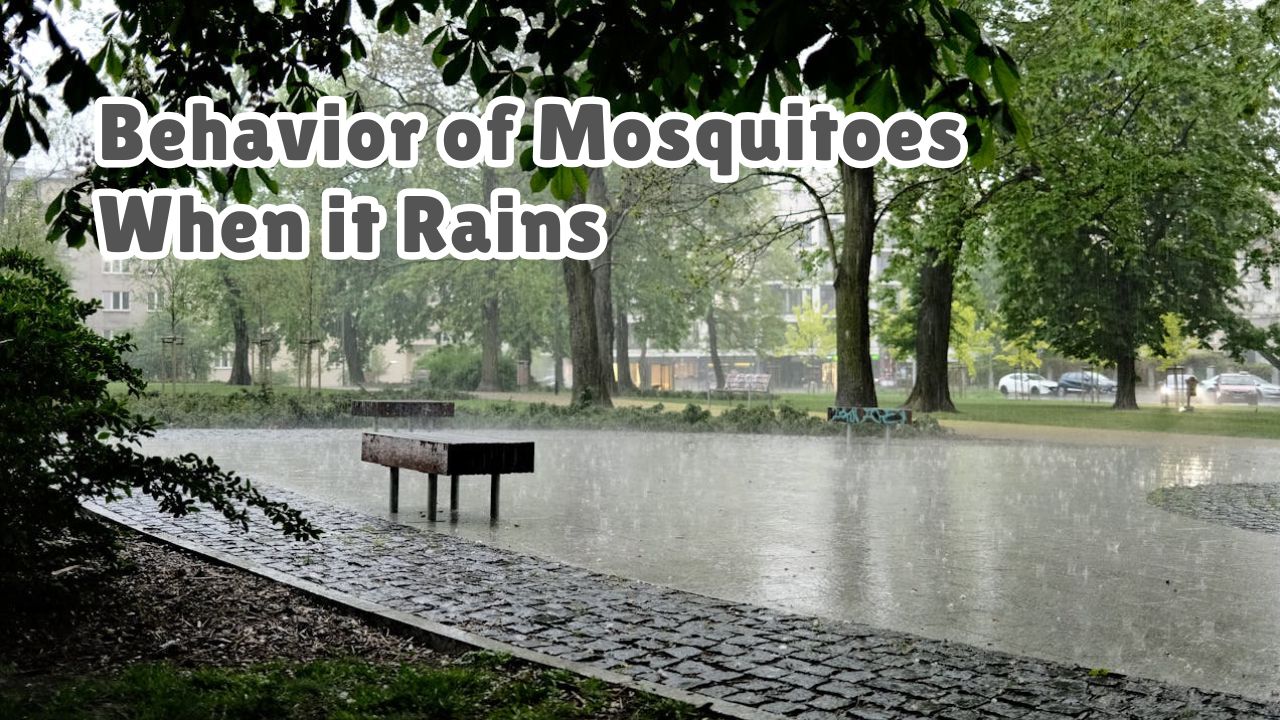Exploring the behavior of mosquitoes when it rains
Mosquitoes are insects that are capable to change and adapt according to the circumstances they find themselves in. This includes their unique behavior in the presence of rain. The level of activity as well as their preferred habitats may tend to vary during the time of rainfall. In this article, we will see where do mosquitoes go when it rains and how do they fly in the rain.
Do mosquitoes come out when it rains?
As a rule, mosquitoes do not like to be active when there is heavy rain. Rain can certainly make it difficult for them to fly, since the majority of mosquitoes can’t fly very well and are generally bad at battling winds and raindrops. However, they may also come out during light rains or after rain when the conditions are better.
Therefore, the question of whether mosquitoes come out when it rains has only one answer and that is what the amount of rain is. If it’s a light shower, mosquitoes will definitely not be scared away while the same cannot be said for when it’s pouring heavily.
Do mosquitoes fly in the rain?
In theory, mosquitoes probably DO have the ability to fly in the light rain but they experience a lot of challenges as their effectiveness in the ability to do so decreases. Though in their flight, the impact of rain is arguably the most important thing to consider; heavy winds and raindrops are bad because they will make it hard for them to see, smell and detect the olfactory cues, which will make it hard to find a host.
So because of this, during heavy rains, mosquitoes fly to plants or hide at places where they can stay dry and use less energy.
Where do mosquitoes go during rain?
As it thunders and rains heavily, mosquitoes tend to find these places safe and sound for them:
- Dense vegetation: Leaves, branches, and shrubs can provide cover from the rain.
- Buildings and structures: They might go to a cave or overhanging rock.
- Ground debris: A log or crust can provide some cover.
Getting access to these regions helps them expend less energy and stay away from the extreme weather elements of rain.
So what is the relation between, Rain and Mosquitoes?
To say that the relationship between rain and mosquitoes is moderate would be an understatement. Yes, rain creates temporary breeding sites like puddles but it never fails to change their behavior in the short-term. After a storm, as there is an abundance of standing water, the population of mosquitoes is likely to increase as a result of their reproduction in the new area.
However, mosquito activity may normally decrease immediately during rainfall. Quite expected I guess!

Image Source: Canva Pro
Effect of rain on mosquito breeding habits
Rain is a major contributor to changes in mosquito breeding practices as it creates new environments and affects larval mortality. The existence of standing water bodies as a result of rains makes it easy for most species of mosquitoes including Aedes and Anopheles to reproduce. These mosquitoes reproduce in still water like puddles, depressions, pools, or any other containers and objects left outside.
Rain also has an adverse effect on mosquito larvae and even adults. Heavy rains lead to high growth cessation, which is the same as completely flushing mosquitoes away from their habitats. Excess water is most likely to wash away all the larva development stages from most of their breeding areas.
Studies cite maximum rainfalls can increase mortalities of larvae by up to 17.5% due to flushing out of their habitats and breeding areas during the conditions of a storm. This dual effect implies that, rain can either benefit mosquito breeding by providing standing waters to mosquitoes for laying eggs but at the same time it will cut down the survival rate of already existing larva.
This will have a direct impact on the entire mosquito populations, and the subsequent spread of diseases.
How does rain help in the control of mosquitoes through larvicide application?
The effectiveness of chemical larvicides depends on several factors which include the involvement of rain in the process. The effectiveness of larvicides can be affected because of heavy rainfall which can wash off the chemicals sprayed on the breeding sites. This also reduces their concentration due to dilution.
Heavy rainfall may cause formation of newer breeding sites and may demand more larvicide and efforts. However, any light shower may help in evenly dispersing the larvicide to different corners across the breeding areas.
📰 Must Read,
✔️ Rain, Hot or Cold – What Weather Do Mosquitoes Enjoy?
✔️ Can We Use Vicks Vaporub to Keep Mosquitoes Away?
In Summary
In conclusion, even though mosquitoes may appear following light rains, they will typically stay indoors during a downpour. However, when the rains continue, their flying powers become weaker, so they seek cover until weather conditions are more favorable. With this knowledge, one can better control mosquito populations, as well as their disease transmission, during the rainy season.
Frequently Asked Questions (FAQs)
-
Do mosquitoes bite in the rain?
There is no doubt mosquitoes will bite in the rain, but biting activity goes down with increase rainfall amount. Mosquitoes may be somewhat active even during light shower as they may be looking for a host in order to suck blood from them. On the other hand, moderate to heavy rains usually makes them inactive as they try to find a cover to stay dry and not waste energy.
-
Can mosquitoes fly in the rain, or do they just stay hidden there?
Mountain mosquitoes fly in light rain. However, heavier rainfall the other hand can cause a lot of trouble. Thanks to their small sizes, they have a high chance of getting blown over by raindrops which results in them dying more during storms.

